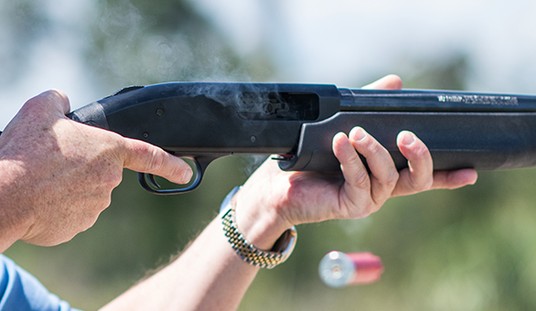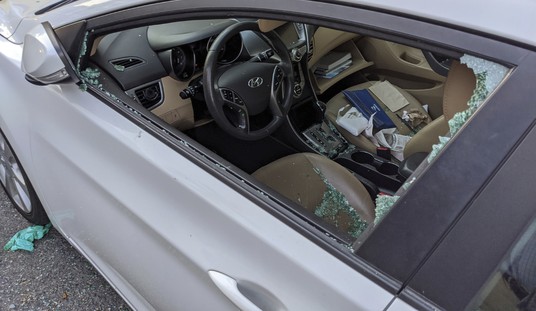The Los Angeles Times has published an editorial this morning that is sure to cause some uncomfortable conversations (and more than a little denial) in law enforcement agencies around the country:
In terms of mechanical design, there are few flaws with Glock pistols. If a law enforcement officer, soldier or citizen does exactly what they are supposed to do all of the time with cyborg certainty, there will be no problems with the Glock or other popular pistols mimicking its basic design. Unfortunately, “RoboCop” is only a movie, and humans are liable to make similar mistakes over and over again.
The underlying problem with these pistols is a short trigger pull and the lack of an external safety. In real-world encounters, a short trigger pull can be lethal, in part because a significant percentage of law enforcement officers — some experts say as high as 20% — put their finger on the trigger of their weapons when under stress. According to firearms trainers, most officers are completely unaware of their tendency to do this and have a hard time believing it, even when they’re shown video evidence from training exercises.
For more than 35 years, officer-involved accidental discharges with Glocks and Glock-like weapons have been blamed on a lack of training or negligence on the part of the individual cops. What critics should be addressing instead is the brutal reality that short trigger pulls and natural human reflexes are a deadly combination.
As the comments to the article clearly show, people are getting spun-up about the article, without really understanding it… or maybe they are simply in denial.
Mechanically, Glocks and similar pistols are incredibly solid and reliable designs. What they aren’t is forgiving.
Utterly predictable and normal human physiological responses (startle response, symmetric sympathetic response, etc) and psychological mistakes (forgetting the check the chamber on a design that requires the trigger to be pulled for disassembly) have repeatedly lead to hundreds, if not thousands of negligent discharges. Many of those have been fatal.
Agencies that switch from other pistol designs to Glocks (and to a lesser extent, other short trigger pull, no external safety guns) typically see their number of negligent discharges soar. Agencies that switch away from Glocks to more forgiving designs typically see their negligent discharges decrease.
There has been institutional resistance to admitting that Glocks and similar designs are not good guns for law enforcement officers, and for each and every negligent discharge, there is a rush to blame the individual officer and the lack of training time most agencies have with their firearms.
That’s all well and good… and utterly irrelevant.
It has been proven time and again that no amount of training will eliminate the issue. In one videotaped training session after another, about 20% of officers end up putting their fingers on the trigger of their guns when they shouldn’t, and most of them don’t even realize it, and are stunned when they are shown the undeniable truth in the video. According to experts I interviewed who have trained tens of thousands of police officers this is consistent, regardless of the level of training.
We can continue to deny that “humans are gonna be human,” or we can accept that people will make mistakes and switch to designs that have longer first-shot trigger pulls which are more forgiving.
DA/SA handguns like the Sig Sauer “P”-series, the Beretta 9 series and PX4 series, CZs, Smith & Wesson’s metal-frame semis,Ruger’s SR series, etc. can be shot just as fast and accurately as any short trigger pull design (the claim that the long double-action first pull creates misses is a myth), and that longer first-pull requires more deliberate action and is far more forgiving of our physiological and psychological mistakes.
Glock has an incredible marketing machine and customer support and a solid design that works exactly as designed, each and every time.
Unfortunately, until they start manufacturing failure-proof people, Glocks and other short trigger pull guns are going to be a bad choice for professions where high stress is a constant.








Join the conversation as a VIP Member